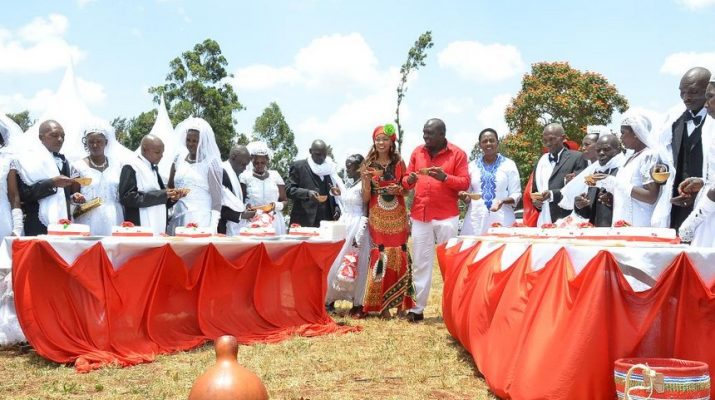It was celebration time in Kandara, Murang’a constituency, on Saturday when 10 couples healed from jigger infestation said their vows in a mass wedding ceremony.
Relatives and locals flocked to the Kagundu-ini grounds to witness the ceremony organised by Ahadi Kenya Trust. Most of the couples had been immobilized, rejected and condemned to a life of poverty. Their families had also been isolated.
“No one wanted to associate with me as I was severely affected by jiggers. I did not know whom to turn to,” groom Nduati wa Betty said.
Nduati met his wife Alice Wairimu after receiving treatment. The 55-year-old peasant farmer and father of four said he still experiences pain in one of his legs because it was severely infested.
Ahadi Kenya CEO Stanley Kamau said the wedding ceremony was a culmination of the 10-year journey his organization has taken to fight jiggers.
He said the organization is now focused on helping survivors re-integrate into the society.
“It is wonderful thousands of people have come out today to witness this wedding. A few years ago, even their relatives did not want anything to do with them,” Kamau said.
“That is how some of them met their spouses after recovering. They had lived in solitude for the better part of their adult lives,” Kamau said. He said most residents of Kagundu-ini village lived in despair before Ahadi Kenya launched its anti-jigger campaign.
“All I saw was pain, poverty and hopelessness, but all that has changed,” Kamau said.Some of the grooms and brides travelled in a car for the first time as they went to church. Others had never tasted a cake.
“This is a message to all those who are still suffering – know there is life after jigger infestation,” Kamau said.
Each couple received a cow, courtesy of Ahadi Kenya. County representative Sabina Chege gave the couples chickens and urged them to engage in business. She said she was glad to see the couples sing and dance, adding other NGOs should follow suit and use donor funding to transform lives.
“These couples will now be able to seek employment to support their families now that they have fully recovered,” Chege said.

